At the preliminary assessment and defense meeting for the "2021 Excellent Student Award of Tongji University", the master’s and doctoral students of Tongji University presented their academic achievements. These students included: ZHENG Xueying, the "academic pacesetter"; ZHANG Wenjin, who has took part in a variety of national key R&D projects; CHEN Yu, who devote himself into the basic research of life sciences; CHU Songfeng, who has left his footprints in more than 120 villages across China; JIN Da, who has led his team to surprising victories in international competitions; WU Jiaojiao, who is committed to working out novel solutions for tumor treatment...
Graduate students could be found in almost all major research projects undertaken by Tongji University in the past five years, such as the National Key R&D Program, the National Major Engineering Research Program, etc. About 70% of the high-standard academic papers and invention patents originating from Tongji University were completed jointly by supervisors and graduate students, and scores of award-winning research results are inseparable from the dedication of graduate students. Over the past half-decade, Tongji University granted nearly 800 doctorate degrees annually, with each graduate student publishing more than 3 high-standard academic papers on average. Graduate students have become an important force beefing up the academic strength of Tongji University.
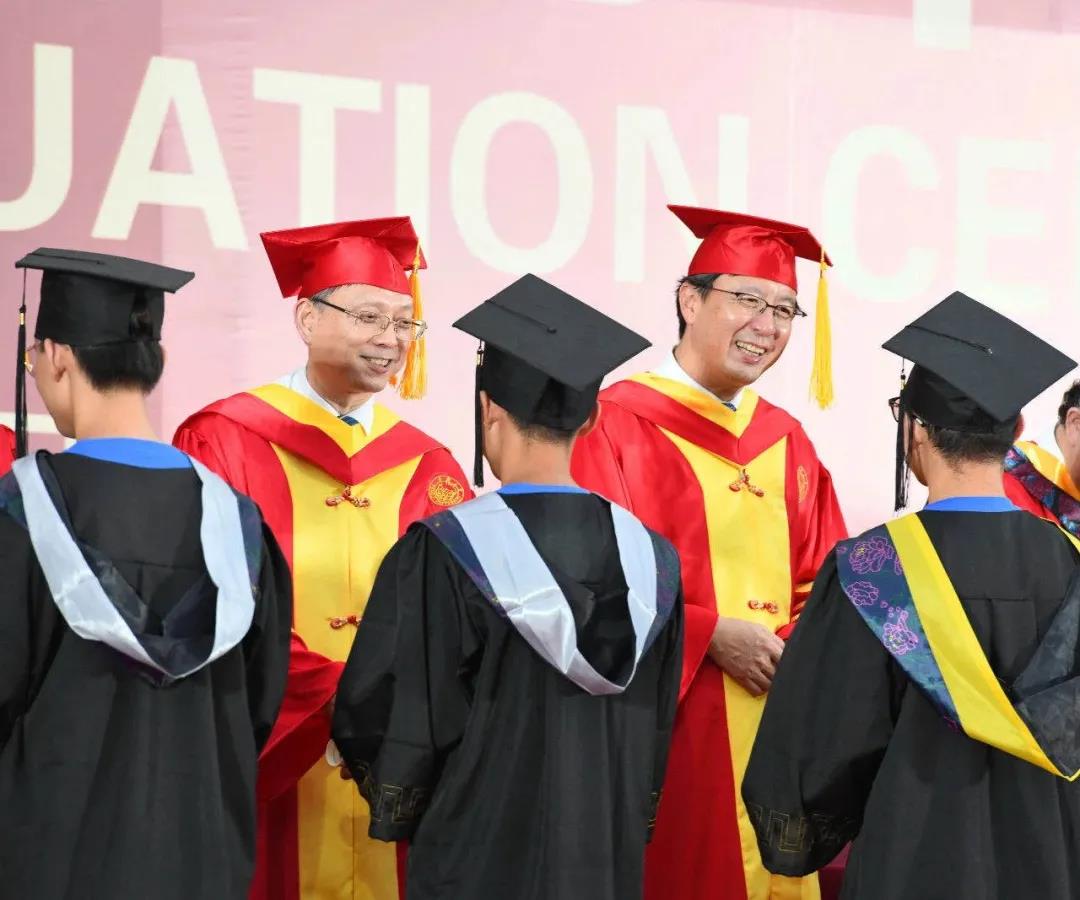
Secretary FANG Shouen and President CHEN Jie talking to the graduates
"These figures highlight the outstanding quality of the graduate education in Tongji University, which mirror the initial fruits of Tongji's drive to deepen its reform of graduate education in recent years," said an official from the Graduate School of Tongji University.
Since the restoration of graduate education 40 years ago, Tongji University has awarded nearly 11,000 doctorate degrees and more than 83,000 master's degrees, supplying a mass of high-quality talents with both moral integrity and professional competence.
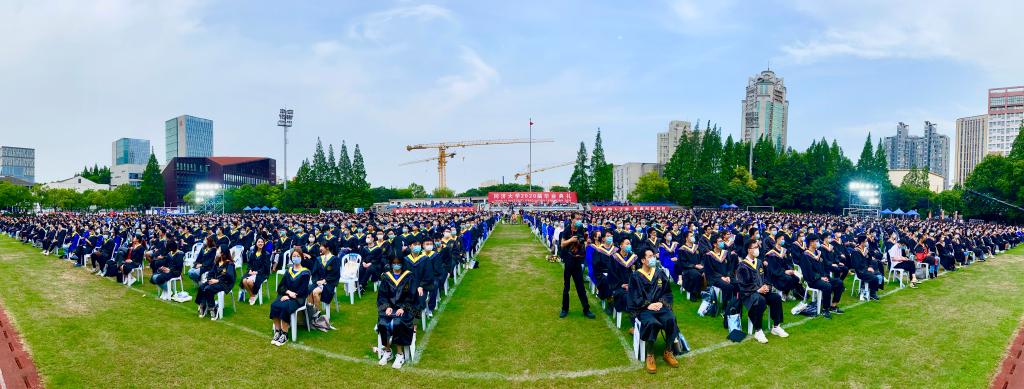
Graduation ceremony
Synergy between professional courses and the ideological and political education
Lately, DONG Zhiyi, Deputy Administrator of Civil Aviation Administration of China (CAAC), delivered a speech for the Tongji University Advanced Lectures for Graduate Students (“Advanced Lectures”). Introducing teachers and students to the latest achievements of China's civil aviation industry in recent years and its blueprint for future development, he welcomed those with lofty ideals to join the civil aviation industry. Over the past year, big names who were invited to the Advanced Lectures included: YUAN Yaxiang, Member of the Chinese Academy of Sciences; ZHOU Xuhong, Member of the Chinese Academy of Engineering; ZHANG Wenhong, Director of the Department of Infectious Diseases at Huashan Hospital Affiliated to Fudan University; and TAN Yuanyuan, a famous ballet artist.
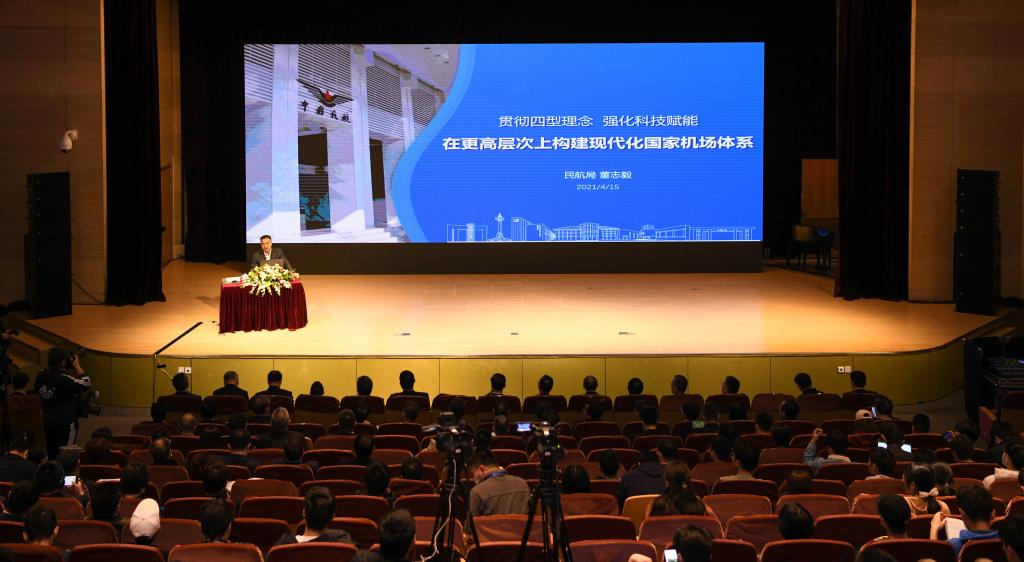
DONG Zhiyi delivering his speech
Tongji University Advanced Lectures for Graduate Students marks another pivotal move of Tongji in carrying forward its mission of fostering virtue through education. Since the fall semester of 2018, Tongji University has included "Advanced Lectures" into the compulsory courses for its graduate students. Consisting of the three modules of "Ideological and Political Quality", "Academic Quality" and "Professional Quality", Advanced Lectures invites party and government elites, academics and entrepreneurs to share their insights into learning and research, thereby enhancing the academic competence and comprehensive quality of graduate students. Every year, there are some 100 university-level lectures and some 500 school-level lectures.
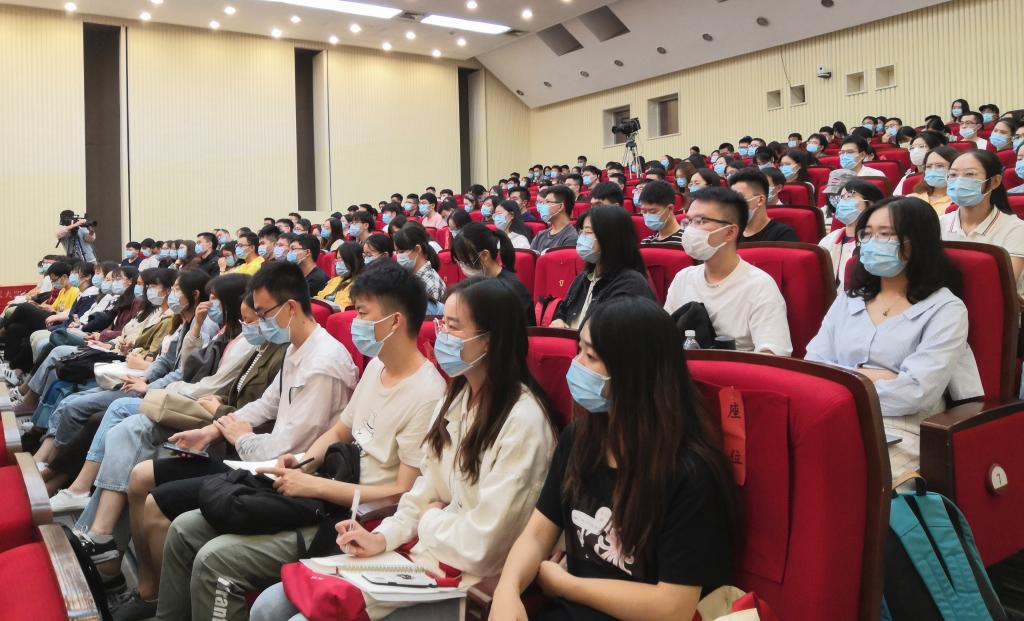
Students listening carefully to the lecture
Continuously exploring the ideological and political education elements entrenched in the graduate courses of various disciplines, Tongji University manages to find the perfect synergy between professional courses and the ideological and political education. As one of China's only 20 higher education institutions allowed for the independent review of degree-conferring, Tongji University included Marxist theory into the first-level disciplines authorized to confer doctoral degrees after independent review, thereby beefing up the academic strength of its School of Marxism. In its push for the full coverage of ideological and political education in all graduate courses, Tongji University specifically asked to strengthen the integration of ideological and political education into the professional courses offered by the graduate degree programs of all disciplines and majors for students enrolled since 2018. In addition to drafting the "Ideological and Political Education Guidelines for Transportation Courses", Shanghai's very first guide to ideological and political education, Tongji University rendered full support to Shanghai's pilot initiative of integrating ideological and political education into the professional courses of five "key pacesetting colleges", and has rolled out an torrent of model ideological and political courses with Tongji characteristics for graduate degree programs and those integrated undergraduate-graduate degree programs, such as "Chinese Roads", "Engineering Ethics", "Transportation and Human Civilization", etc., allowing full coverage of ideological and political education in general education courses, professional courses, basic public courses, and academic frontier courses.
Developed by the College of Civil Engineering, "Engineering Ethics" was originally a general education course for undergraduate students. It was later upgraded into a compulsory course for all graduate students in engineering disciplines, and is now jointly taught by teachers from multiple schools, with its content covering multiple disciplines such as engineering, biomedicine, management and sociology. The course team also completed the remote teaching guidance for the "Engineering Ethics" course launched by Xinjiang University, in an effort to help the later train their teachers for this very course.
Tongji University has also upgraded the "mid-term assessment" of doctoral students to "mid-term comprehensive assessment", which is composed of 4 parts, i.e. ideological character and academic integrity, curriculum learning, academic competence and the mid-term progress of the dissertation. If the student fails in any of these 4 parts, he/she would fail the "mid-term comprehensive assessment".
At the Graduate Education Conference of Tongji University held earlier, Tongji University commended the first batch of 10 pacesetting excellent graduate student-supervisor teams and 10 excellent graduate student-supervisor teams, which were all stellar examples boasting outstanding performance in ideological education, academic research and innovative practices.
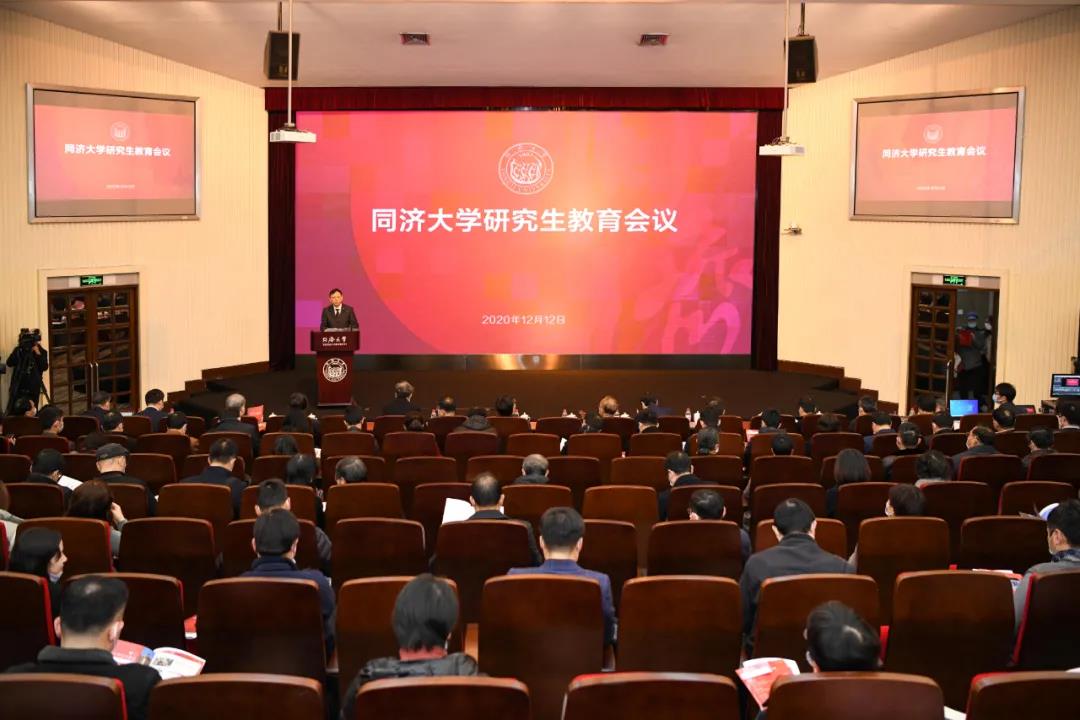
Graduate Education Conference of Tongji University
Push forward the reform of the supervisor assessment system
"Tongji University implements a system to assess the work attitude, moral virtue, academic competence, research support, student quality and teaching performance of postgraduate supervisors, and the assessment results will be used to inform decisions on student recruitment and the allowed number of students recruited in the next year, the selection of excellent supervisors, the performance-based reward, etc. ... In supervising students, postgraduate supervisors shall strictly follow the work attendance rules of Tongji University, negotiate a regular meeting schedule with graduate students, and meet with graduate students at least once every week ... Before taking a leave, including business trip, overseas trip, private trip abroad or vacations, postgraduate supervisors must make necessary supervisory arrangements for graduate students during his/her leave ... Postgraduate supervisors must respect the personality of graduate students ...”
These provisions come from the Rules of Tongji University on the Work Duties of Postgraduate Supervisors, which were revised and republished by Tongji University in 2017 and 2020 and consist of 6 chapters and 36 articles to make clear the duties of and work rules for postgraduate supervisors.
The construction of the supervisor team is crucial to graduate education. Tongji University kicked off a reform on the work rules for supervisors as early as in 2015. On the one hand, the qualification review of supervisors was cancelled and brought into line with the review of professional title of teachers. On the other hand, the power was decentralized, with the degree evaluation sub-committees of different disciplines jointly hammering out the Measures for Determining the Qualification of Postgraduate Supervisors to Recruit Students and Allocating the Student Recruitment Quotas according to the situations of respective disciplines. According to the recruitment needs of respective disciplines, Tongji University will assess each supervisor's academic achievements, research performance, ability to tutor graduate students, and the quality of tutoring, which will determine the qualification of the supervisor to recruit students in the next year, thereby highlighting the paramount responsibility of the supervisor in tutoring graduate students. Tongji University has also established a system to clarify the main responsibilities of positions related to "discipline, major and course".
According to an official, since the roll-out of the dynamic management of the qualification for student recruitment, i.e. to limit the number of students recruited, to suspend student recruitment or even to disqualify the supervisor as the case may be, some 100 supervisors are barred from recruiting students while another 100 teachers become supervisors every year. Under the new system, supervisor is no longer a tenured position. This move further heightens the vitality of supervisors and significantly improve the overall performance of supervisors in tutoring graduate students.
In 2019, Tongji University resumed the intra-university selection of excellent doctoral dissertations and master's theses, and started to encourage students to compete for outstanding doctoral dissertation awards granted by first-tier national societies, in an effort to prompt supervisors and graduate students to yield high-quality research results. In the wake of the general improvement in the capacity building of supervisors, the fostering quality and academic competence of graduate students have also seen a tremendous boost. In October 2020, two doctoral dissertations from the College of Environmental Science and Engineering were selected into the 11 national "Excellent Doctoral Dissertations of the Chinese Society for Environmental Sciences for 2020", and 1 doctoral dissertation from the College of Surveying and Geo-Informatics was selected into the 10 national "Excellent Doctoral Dissertations of the GNSS and LBS Association of China".
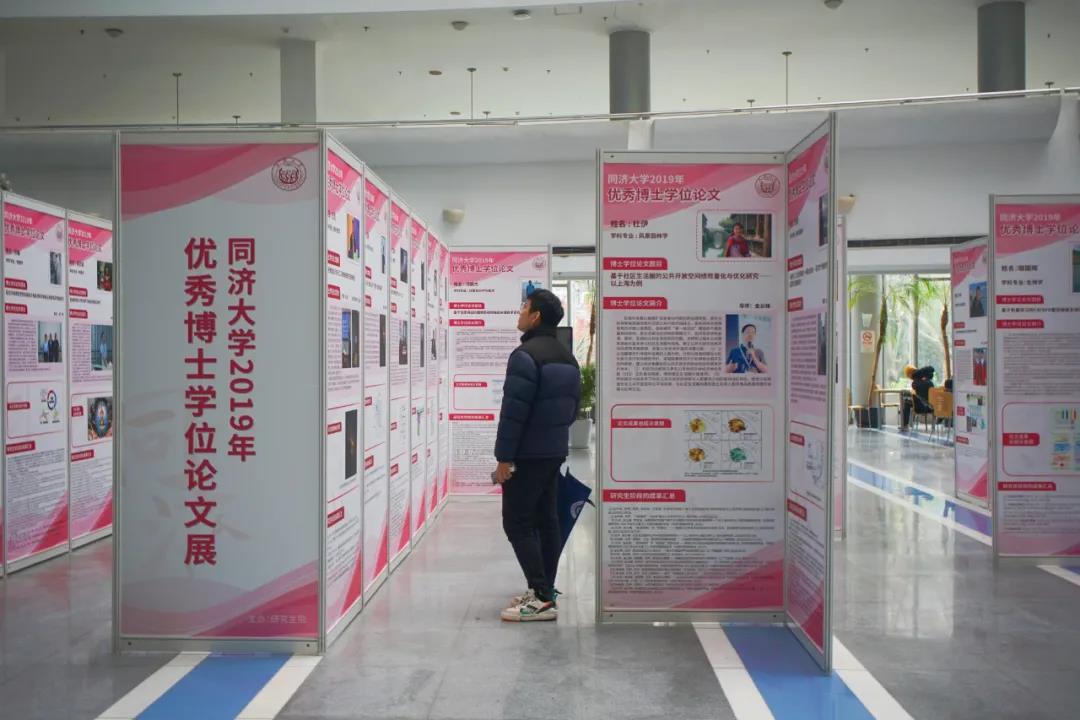
An exhibition of excellent doctoral dissertations
It is also worth mentioning that, as one of the first 16 universities approved by the Ministry of Education to pilot research fund-financed doctoral programs, Tongji University has successfully recruited doctoral students for this pilot initiative to serve the major strategic needs of China. With the support of the Ministry of Education, Tongji University also completed the "National Special Student Recruitment Plan for Fostering High-level Talents Urgently Needed in Key Fields" by recruiting 118 and 170 doctoral students in artificial intelligence in 2019 and 2020 respectively, a benign addition to the research fund-financed doctoral programs. Led by their supervisors, these doctoral students from different disciplines have carried out fruitful interdisciplinary research at the Shanghai Research Institute for Intelligent Autonomous Systems, an establishment housed in Tongji University.
Deepen the reform of graduate education assessment and adhere to diversified standards
Quite a number of supervisors and graduate students hold the opinion that Tongji's recent drive to push for the diversification of the accreditation standards for graduate degrees has prompted supervisors and graduate students to engage exclusively in scholarship and to produce extraordinary research results.
Shifting focus from the quantity to the quality of research results, recognizing diversified academic results, highlighting the dominant role of the degree thesis ... In 2017, insisting on the multi-dimensional assessment of talent fostering, the Academic Degree Evaluation Committee of Tongji University authorized each sub-committee to formulate scientific, reasonable and diversified degree accreditation standards based on the characteristics of respective disciplines. By fortifying university-school management and striving to melt away the "paper mania", especially the mania for getting papers published in SCI indexed journals, Tongji has gradually brought into shape its diversified standards for degree accreditation.
Instead of focusing on scores only, Tongji University grants autonomy to all colleges and schools to follow through the "application-assessment" selection mechanism in recruiting their doctoral students. As early as in 2010, Tongji University began to pilot the "application-assessment" mechanism, which highlights the assessment of candidates' research capabilities and personal potential for doctoral studies, in recruiting doctoral students for its 13 colleges/schools with key disciplines. Following the release of the admission guide by the Graduate School, each college/school will then work out their own implementation measures, review the application materials of candidates, and arrange qualified candidates to sit for the re-examination. By 2020, the "application-assessment" mechanism has covered all disciplines and majors of Tongji University, with 75% of doctoral students coming from top Chinese universities.
Through the establishment of a "stringent-flexible" transfer and withdrawal mechanism, Tongji University teams with its colleges/schools to improve the general competence and fostering quality of its graduate students. Tongji University established in 2017 and has since been improving its student transfer and withdrawal mechanism underlain by the whole-process management of talent fostering, which puts emphasis on the moral virtue, academic integrity, process evaluation and academic assessment. During student recruitment, postgraduate studies and thesis review, students with any academic misconduct will be withdrawn from the program. During postgraduate studies, if the student fails any important assessment, he/she will also be withdrawn from the program. These highlight the "stringent" part of the mechanism. Taking into account the differences between disciplines, Tongji University pushes for the classified guidance over theses and dissertations by ordering the sub-committees to draft the implementation rules for blind review, pre-defense and defense of theses and dissertations, and by mandating the Graduate School to file theses and dissertations and to oversee the relevant processes. These underscore the "flexible" part of the mechanism.
In its resolve to bring into being an internal quality assurance system for talent fostering and to forge Tongji's own quality culture, the Quality Assurance Office of Tongji University spearheaded an effort to push for the "six-in-one" teacher assessment, which comprises effect assessment, diagnostic assessment, process assessment, graduate survey, teacher self-assessment and peer assessment, and the "full-chain" fostering quality assessment consisting of admission assessment, freshmen assessment, grade-specific assessment, graduation assessment, post-graduation tracking assessment and employer assessment.
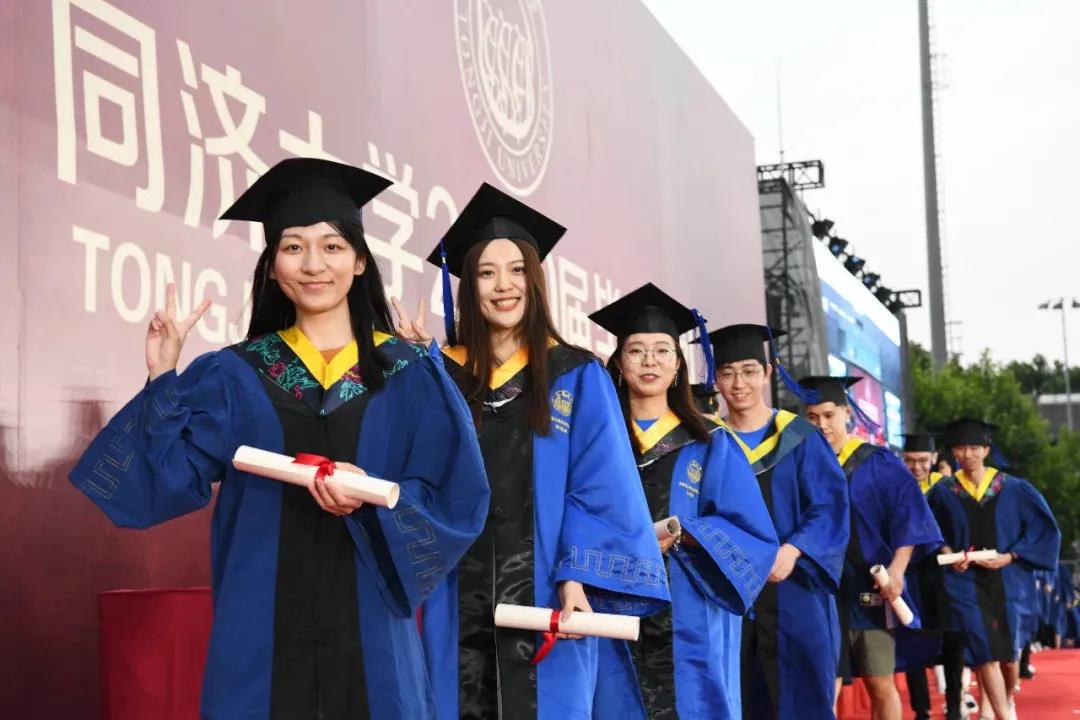
Graduation ceremony
"Tongji University will always keep in mind its mission of fostering talents for the Party and the state, adhere to the 'four aligns', push ahead the high-quality development of graduate education, ratchet up the fostering of top-notch talents needed by the state, assist in forging national strategic scientific and technological capabilities, bolster the building of a world-class university and first-class disciplines with top-class graduate education, and render strong intellectual support for the comprehensive construction of socialist modernization," said an official from the Graduate School of Tongji University.
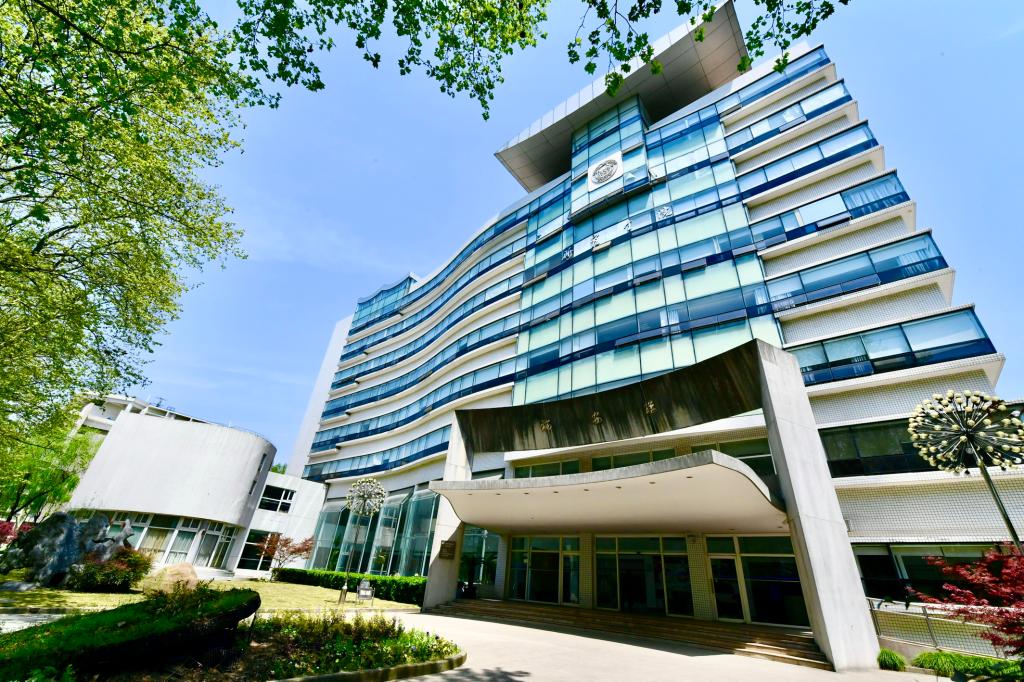
Rui'an Building, Tongji University
https://news.tongji.edu.cn/info/1003/77449.htm